UNSUNG EDUCATION HEROES
Ready to retire, but not nearly finished yet: Meet the unsung heroes of South Africa – our teachers
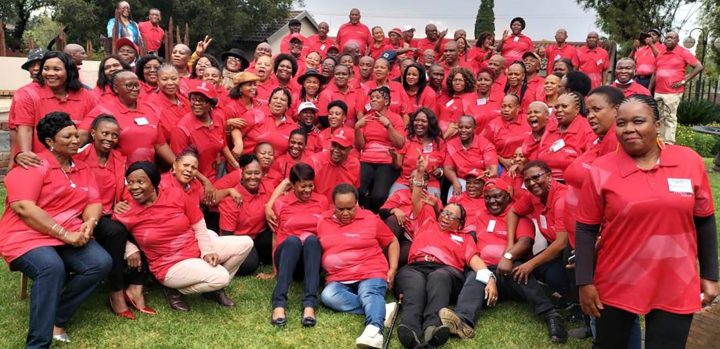
A recent reunion of teachers who qualified at the former Transvaal Teachers Training College in the 1980s was a celebration of education in South Africa, with all its challenges, trials and triumphs.
Students from the apartheid-era Transvaal Teachers Training College (now the Transvaal College of Education, TCE) class of 1982 to 1986 gathered in Ekurhuleni recently for a reunion to celebrate a lifetime of teaching – despite challenging conditions – in South Africa. They also doffed their hats to dedicated, tenacious teachers in South Africa who are our unsung heroes and who have served the education sector for 35 to 38 years. These teachers were trained during an era of segregation and unequal schooling, and have overcome enormous challenges. They are now at the age of retirement.
The event, Facing the Future without Fear, recognised teachers who are about to retire and those still in the sector, to encourage them to face the future without fear, knowing that they are all connected as teachers. DM168 was there to hear some of their stories.
For some, it’s a sense of duty. For others an obligation to educate and fill a complex set of roles.
Their names aren’t necessarily recognisable. But their work and determination in the South African education sector, without a shadow of doubt, contributed to the freedom of education we enjoy today. These are their stories.
Joel Dzumba
“Teaching is a noble profession. I didn’t go for teaching because I wanted money.”
Joel Dzumba (61) is a TCE graduate with a Secondary Teachers’ Diploma, majoring in economics and accounting.
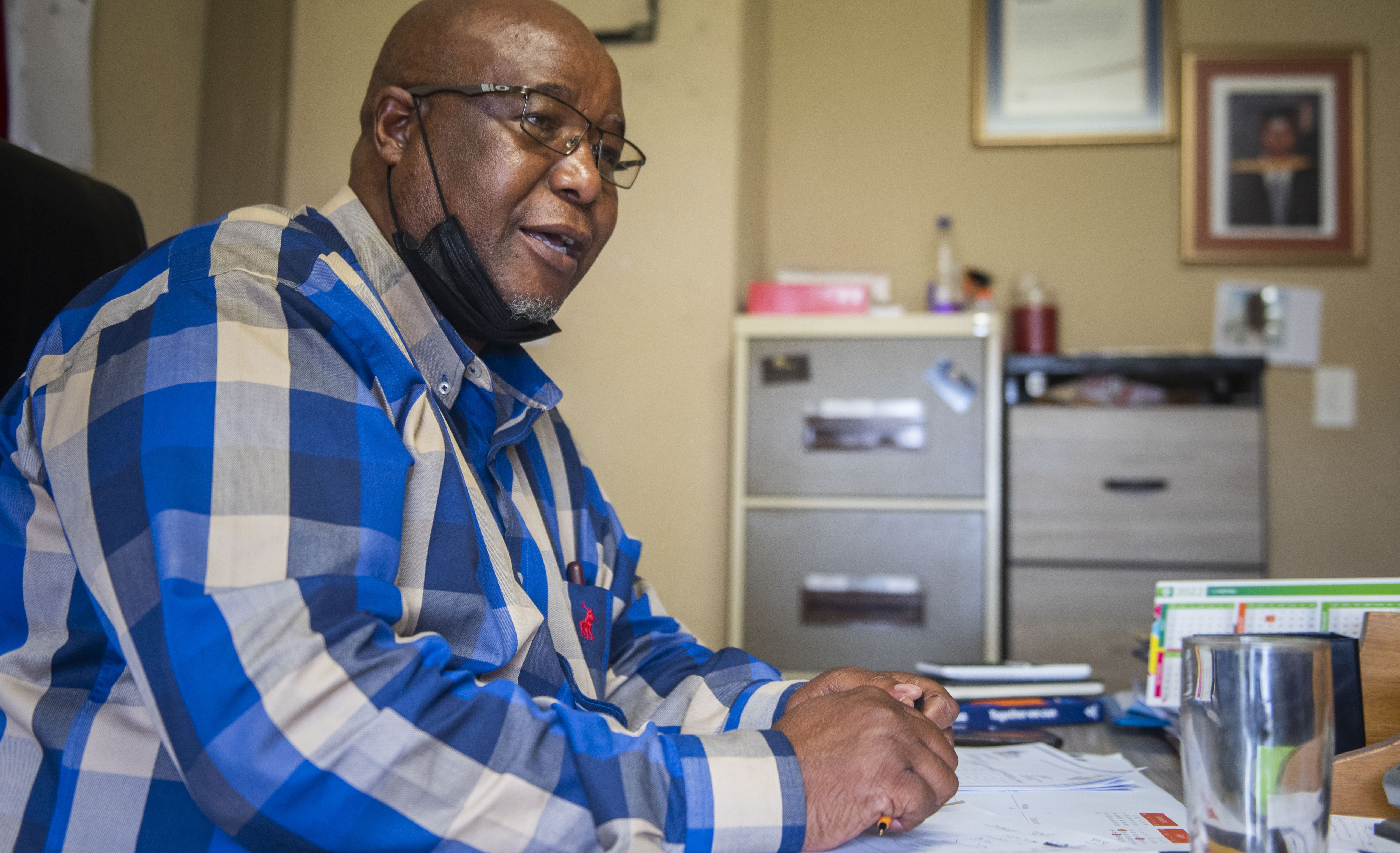
Joel Dzumba. (Photo: Alet Pretorius)
“Teaching is a passion. I can retire anytime but I’ve set myself a goal that for those I have taught, if this number could be accountants, then I’ve reached my target.”
Recalling college life, Dzumba says: “I enjoyed my life at college as a young man… We were the first group to qualify after three years and we thought that we knew better, and were more qualified than other teachers before us.”
He taught in various schools, including J Kekana High School, Reitumetse Secondary School, Vlakfontein Secondary School and Nelmata Secondary School, until he was promoted to deputy principal at Nellmapius Secondary in 2014, then principal four years later.
“I enjoyed myself as a teacher. Unfortunately, you cannot refuse to be promoted. But I miss the classroom. Now I call myself a Covid principal. As a Covid principal, there are so many challenges. The challenges of rotational timetables, where pupils should attend at intervals, [and] teachers over 60 who are vulnerable to this pandemic having to take leave.”
Dzumba followed in the footsteps of his uncle, a teacher in Limpopo. His mission has been to educate the nation because, if you educate the nation, you reduce poverty.
He wishes people would not undervalue the teaching profession because every person goes through the hands of a teacher, indirectly contributing to the country’s GDP.
“There are ups and downs. The good thing is when you are in a class teaching learners, you are making them pass and seeing them progress. The bad thing, however, is when you teach learners, they bunk classes, they become dropouts; when you see them in the streets and they acknowledge you as their teacher and say they are what they are because of you. It is disheartening because they became nothing in life.”
David Mogoane
“It has been a very difficult journey from working in underresourced schools and overcrowded schools.”
David Mogoane says good administration is key in the delivery of education and the output of schools.
“There are three things central to school performance: proper management of the delivery of curriculum, discipline and resources. The actual output of schools is not so much with the top management but with where the operations are. Once you have your systems in place and working you can guarantee a good output and working environment.”
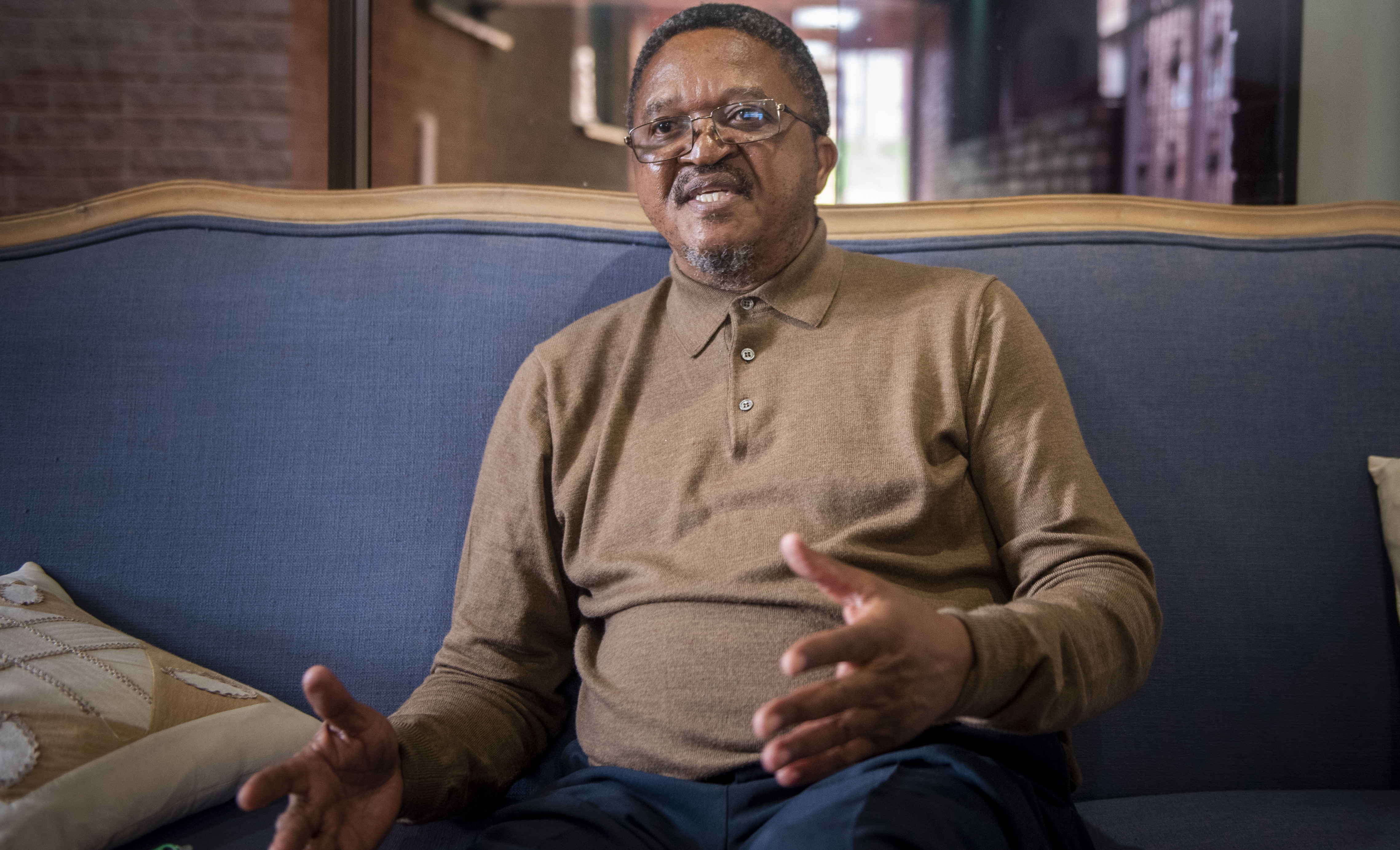
David Mogoane. (Photo: Alet Pretorius)
Mogoane (58) was born in Lady Selborne and brought up in Mamelodi. Just like Gregory Masondo, Mogoane had a dream to pursue law but that never materialised because of a lack of funds to access university. Mogoane enrolled at and graduated from TCE in 1985. He taught for about 10 years before venturing into the administrative side of education.
“It has been a very difficult journey, from working in underresourced schools, particularly in KwaNdebele, to dealing with overcrowding issues in Gauteng schools. But… a lot has improved between then and now. I enjoyed being a labour relations officer because I got to deal with problems, and at some point the chief negotiator of the Department of Education worked with unions to try to get the operations of the department to be as smooth as possible. I enjoyed it most when I became a circuit manager at the Tshwane South district because I was dealing directly with schools, offering support to school managers and school governing bodies, particularly in respect of the delivery of curriculum and the management of institutions.”
Mogoane, a retired English and history teacher, and Tshwane South circuit manager, is developing manuals for training school management, including principals and school governing bodies.
Gregory Masondo
“I wanted to be empowered to do more in resolving challenges faced by teachers.”
Retired Gregory Ngonyama Masondo left the classroom to advocate for better working conditions for teachers, and is now CEO at the National Professional Teachers’ Organisation of South Africa (Naptosa).
“Looking at the broader schooling communities across the country then, our education was poor even when we had qualified teachers who were very passionate about the profession. They couldn’t do much because of overcrowding.
“On the other hand, there was the issue of the pit toilets. While reading the newspaper one day I was touched by a particular story in the Eastern Cape where a teacher had to relieve herself accompanied by two other teachers who held a blanket in front of her so that the children and other people could not see what was happening.

Gregory Masondo works during load shedding at his home in Mamelodi. (Photo: Alet Pretorius)
“I felt I needed a platform where I could address the issues of the teachers and the only platform that I saw as leverage of some sort was joining a teachers’ union, Naptosa, as an employee,” said Masondo.
His earlier activism started in 1980 when he got involved in student protests, which led to him being hunted down by the apartheid security police and having to flee his home in Mamelodi, Pretoria.
He joined the teaching sector because his parents could not afford the university fees to pursue his dream of becoming a lawyer.
In 1982 he enrolled at the then Transvaal Teachers Training College. In his second year (1983) the institution expelled some of the female students who became pregnant. Again Masondo joined the protests and was expelled. With the help of the South African Council of Churches, he and others raised money to contest their expulsion in court. They won the case and were reinstated at the college.
Masondo completed his studies in 1984 and started teaching in 1985 at his former secondary school, Ribane-Laka High School in Mamelodi, where he taught for seven years before being promoted to head of department at Ndima Primary School in Mamelodi West. He later applied to be principal at Buhlabatsatsi Primary School, and got the post.
After three years Masondo applied for another principal post and was appointed at Vezulwazi Primary School, where he served for 10 years.
He said that when he started as principal at Vezulwazi some children came to school with empty stomachs; their only meal was provided by the school nutrition programme. They found the money for more meals.
“When I left in 2007 a lot had improved… The minister of basic education had built the school an additional 10 classes to deal with the issue of overcrowding. Many parents and learners pleaded with me not to go. What made me go was seeing the situation in other schools where teachers had to teach in appalling conditions… I wanted to make a difference in the broader schooling communities.”
Eunice Phiri
“Born in a family of teachers – I always knew I would end up a teacher.”
“I was once asked by the principal what I wanted to be after completing school and I said to him, I want to be a teacher. I loved being a teacher through my father, who was a teacher, and my brothers – five of them were teachers. I also loved reading. So when I completed my matric in 1981 there was no question about what I would do next. I never even thought about university… I went straight to register for teachers’ courses at TCE for the following year,” said Eunice Phiri.
Phiri (61) qualified as a teacher at TCE in 1984. She holds a master’s degree (Wits) in English education and is working towards a PhD, focusing on the poetry club she established and the poems, written by pupils, that were published in the anthology Potential Unleashed.
Phiri was born in Nelspruit and, at the age of six, her family relocated to Bronkhorstspruit, where she started school. She enjoyed debate, Afrikaans, English, history and biology.
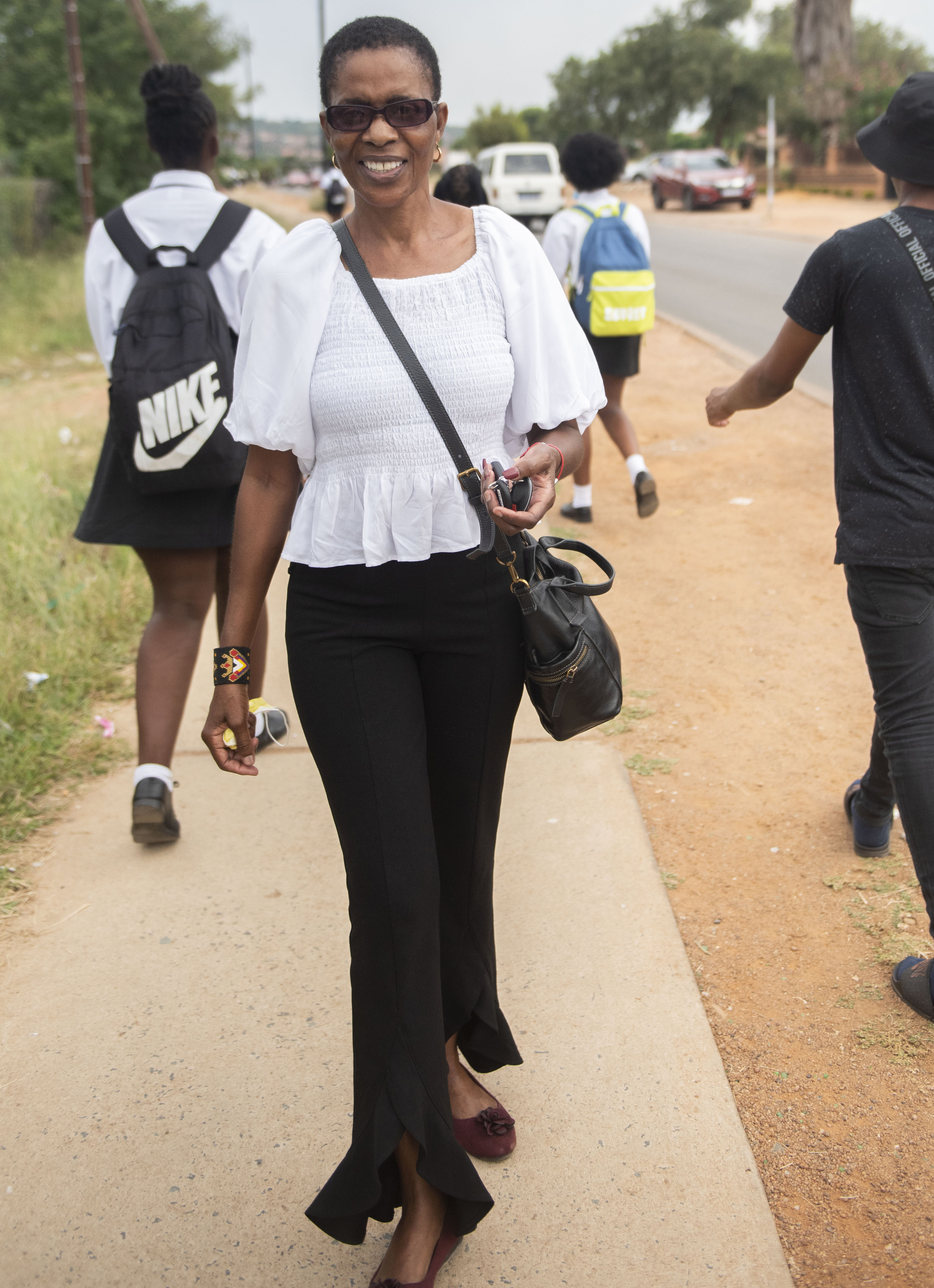
Eunice Phiri, a retired teacher at Wallmansthal High School in Soshanguve, walks close to her home. (Photo: Alet Pretorius)
“I had the best teachers ever in Afrikaans, biology, English and history. I was looking forward to the periods of those subjects. The principal would sometimes teach us English. He loved poetry and he would even recite sonnets such as William Shakespeare. Shall I compare thee to a summer’s day? Thou art more lovely and more temperate. We would have that.”
Her love for English and teaching developed fast.
As a teacher, Phiri said she never wanted to stifle pupils. “I enjoy teaching and dramatising a lot. Whether it’s a Grade 10 or 12 class, in all the classes I taught I wanted them to chill and enjoy. Sometimes I just kept them out of the classroom but anywhere suitable in the schoolyard. The learners would then recite anything they had, dance, sing and also play instruments and stuff, and I would bring that to school.”
Phiri retired in 2021 after teaching English for 37 years at Wallmansthal High School.
Lucy Phalatse
“Educators become social workers, psychologists, psychiatrists, policemen and policewomen, security guards, nurses and midwives.”
“Teaching during the apartheid era was extremely harsh, humiliating and robotic. Educators did not have a voice and were suffocating under the autocratic leadership of the Bantu Education Department and principals. The Afrikaner school inspectors would come to a school unannounced to do their inspection rounds, expecting educators to perform miracles in the classroom. Most of them were utterly demeaning and racist. They aimed to see you squirm in front of your learners and make you doubt yourself and feel worthless. They failed to develop and nurture black educators.”
But there were some wonderful exceptions, said Phalatse, providing an anecdote. “One day I witnessed these inspectors conducting a guerrilla visit at a school where I was working. The principal, who was standing outside the office, saw them enter the school premises. Marching towards him like soldiers about to do a drill, they demanded to know who the principal was. He responded in English – they had spoken to him in Afrikaans. They asked him to show them where the matric classes were, to which he replied: ‘You are not going to come sauntering into my school and do as you please. I don’t remember getting a call from the circular informing me timeously of your visit. You have no manners! Now, if you please, get out the same way you came. I have a school to run. You are wasting my time!’ I remember them standing frozen in front of him, in disbelief, dumbfounded, walking slowly towards their cars. I have never forgotten that incident.”
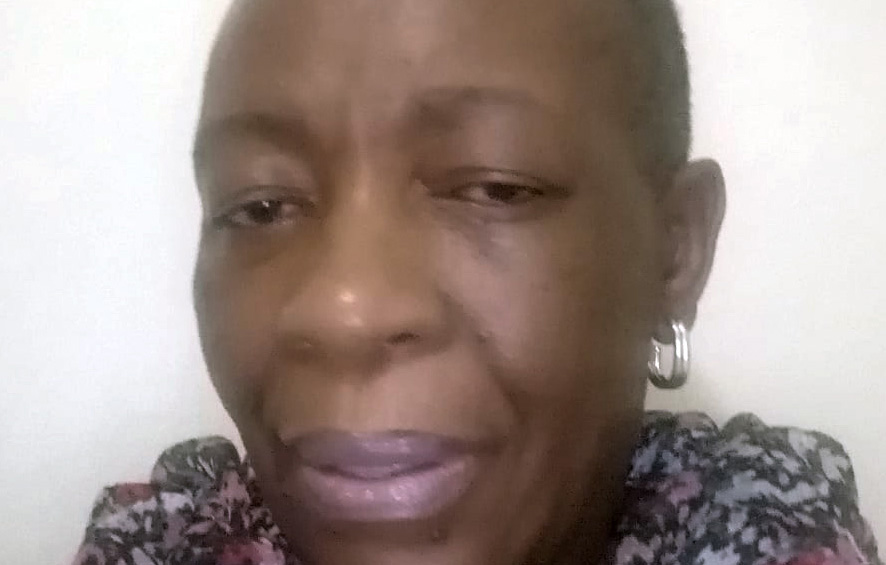
Lucy Phalatse taught in the apartheid era and is still in the teaching sector. (Photo: Lucy Phalatse)
For Phalatse, teaching in the democratic era has not been easy either, but she said: “In the democratic era, educators have recognised the need to improve their professional qualifications, working extra-hard and smart for the sake of developing our nation. However, we should be remunerated generously, whether one is working at a public, private or independent school.
“The challenges faced by educators are diverse. Parents in rural South Africa come to Gauteng, with their children, looking for jobs, with no fixed place of abode and no money. Learners are sent to schools without proper documentation for registration. For educators, this means a lot of paperwork… In most cases, such learners do not live with their biological parents. Then, educators become social workers, psychologists, psychiatrists, policemen and policewomen, security guards, nurses and midwives, because in some cases pregnant learners go into labour, or worse, give birth inside a classroom,” she said.
“Educators have become vulnerable because communities no longer value education. I sometimes think that schools have become prisons and educators are warders. Our politicians do not emphasise the value of education. The South African education system is rigid and it stifles educators, learners and parents. The education departments and unions are not doing enough to protect the rights of educators in independent schools, who are at the mercy of their owners.
“I am hopeful that sooner rather than later our challenges will be successfully tackled – if and only if all stakeholders are active participants in the building of our children’s future.” DM168
Teachers are the unsung heroes of our country. Do you have a teacher you want to celebrate? Tell us about them in the comments below.
This story first appeared in our weekly Daily Maverick 168 newspaper which is available for R25 at Pick n Pay, Exclusive Books and airport bookstores. For your nearest stockist, please click here.









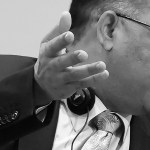









 Become an Insider
Become an Insider
Comments - Please login in order to comment.